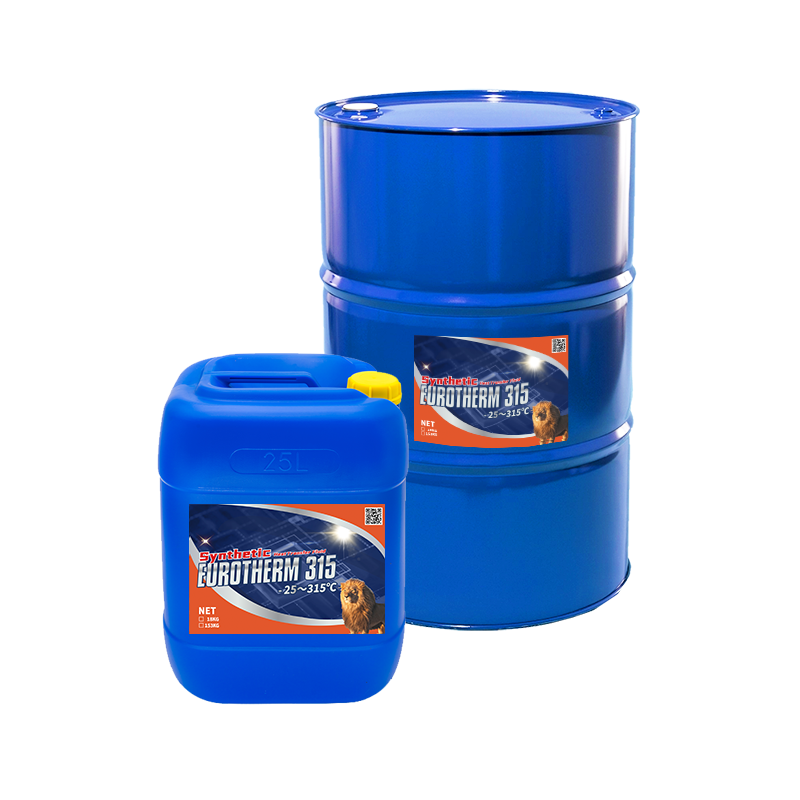Just How to Safely Take Care Of and Get Rid Of Used Heat Transfer Fluid
Just How to Safely Take Care Of and Get Rid Of Used Heat Transfer Fluid
Blog Article
Why Warm Transfer Liquid Is Essential for Optimizing Energy Transfer in Systems
The role of heat transfer liquids in maximizing energy transfer is critical for accomplishing effective thermal management across different commercial fields. These fluids assist in seamless heat exchange, guaranteeing procedures run within optimum temperature varieties and minimizing the danger of overheating.

Duty in Thermal Administration
Heat transfer fluids play a crucial function in thermal management by effectively regulating temperatures in different commercial procedures and systems. These specialized fluids facilitate the transfer of heat in between different elements, making certain optimum operating conditions and avoiding getting too hot. By maintaining exact temperature control, heat transfer fluids allow markets such as chemical manufacturing, oil and gas, and power generation to run safely and effectively.
The option of a proper warmth transfer fluid relies on numerous elements, consisting of thermal stability, warmth capability, and viscosity. High thermal security makes certain that the liquid can hold up against severe temperature levels without weakening, while a high heat ability permits it to soak up and release considerable quantities of warmth - heat transfer fluid. Reduced thickness lowers the power needed for pumping, adding to overall system efficiency
Additionally, warmth transfer liquids are indispensable in applications like refrigeration, where they help absorb and dissipate warmth during the cooling cycle. In solar thermal energy systems, these liquids capture and transportation solar warmth to produce electricity or offer hot water. Their versatility to diverse operating conditions and capacity to keep consistent thermal performance highlight their relevance in commercial thermal administration, facilitating functional connection and enhancing safety steps.

Enhancing System Effectiveness
To optimize the benefits of thermal management, enhancing system effectiveness through the calculated usage of warm transfer fluids is extremely important. These liquids play a vital role in enhancing power transfer by helping with consistent thermal guideline, which in turn impacts the overall efficiency and longevity of systems. Efficient heat transfer results in lessened energy losses, reduced operational costs, and enhanced dependability of tools. By maintaining ideal temperature levels, warmth transfer fluids assist make certain that systems run within their made specifications, thus stopping overheating and reducing the threat of part failing.

Kinds Of Warmth Transfer Liquids
The diversity of heat transfer liquids emphasizes their important role in a series of commercial applications, each tailored to fulfill particular thermal administration needs. These fluids assist in efficient power transfer and are picked based on essential residential or commercial properties such as thermal security, thickness, and warm capacity. The main types consist of water, glycol remedies, oils, and synthetics, each offering distinct benefits.
Water is the most common warm transfer medium due to its high particular warm capability and low cost. Mineral oils are preferred for their thermal stability and non-corrosive nature, making them suitable for high-temperature applications.

These liquids make sure superior efficiency in systems where standard fluids my company may fail. The selection of website here a warm transfer fluid is vital, as it affects system performance, safety and security, and long life.
Environmental and Economic Perks
Utilizing the appropriate warm transfer fluids offers significant ecological and economic advantages for industrial procedures. Ecologically pleasant heat transfer liquids, typically eco-friendly and safe, reduce the threat of soil and water contamination in the event of leaks or spills, thereby shielding environments and conforming with rigorous environmental regulations.
Economically, the appropriate heat transfer liquid can dramatically reduce operational prices. Effective warm transfer decreases power expense, leading to reduced utility costs and boosted profitability. In addition, liquids with extended lifecycle efficiency reduce the regularity of replacements and upkeep, decreasing downtime and associated costs. Buying premium fluids can also minimize the threat of devices deterioration and failing, avoiding expensive repairs and expanding the lifespan of important framework. In affordable markets, these savings and effectiveness give an unique advantage, permitting business to allot resources more efficiently and buy further innovation. Overall, the tactical use of optimum warmth transfer fluids sustains lasting economic growth and ecological stewardship.
Selecting the Right Liquid
Just how does one browse the complex procedure of choosing the appropriate warmth transfer liquid for industrial applications? Picking the proper liquid is essential, as it directly affects system efficiency, safety and security, and operational expenses. Secret factors to consider include thermal stability, compatibility with system materials, and running temperature range. Thermal security makes certain the liquid can hold up against heats without weakening, while compatibility prevents rust or other damaging reactions with system elements. The operating temperature range have to line up with the system's needs to maintain efficiency and durability - heat transfer fluid.
Furthermore, the fluid's warmth capability and viscosity are paramount. A high heat capacity allows the liquid to absorb and transfer more power, improving performance.
Verdict
The strategic selection and application of warm transfer fluids are essential to enhancing power transfer throughout different systems. By ensuring high thermal security and capability, these liquids give specific temperature control and boost total system efficiency. This optimization adds to reduced operational prices go to my blog and reduced greenhouse gas emissions, therefore advertising sustainability. The choice of fluid, customized to certain viscosity and operational demands, is critical for making the most of performance and accomplishing economic and ecological benefits in commercial procedures.
Report this page